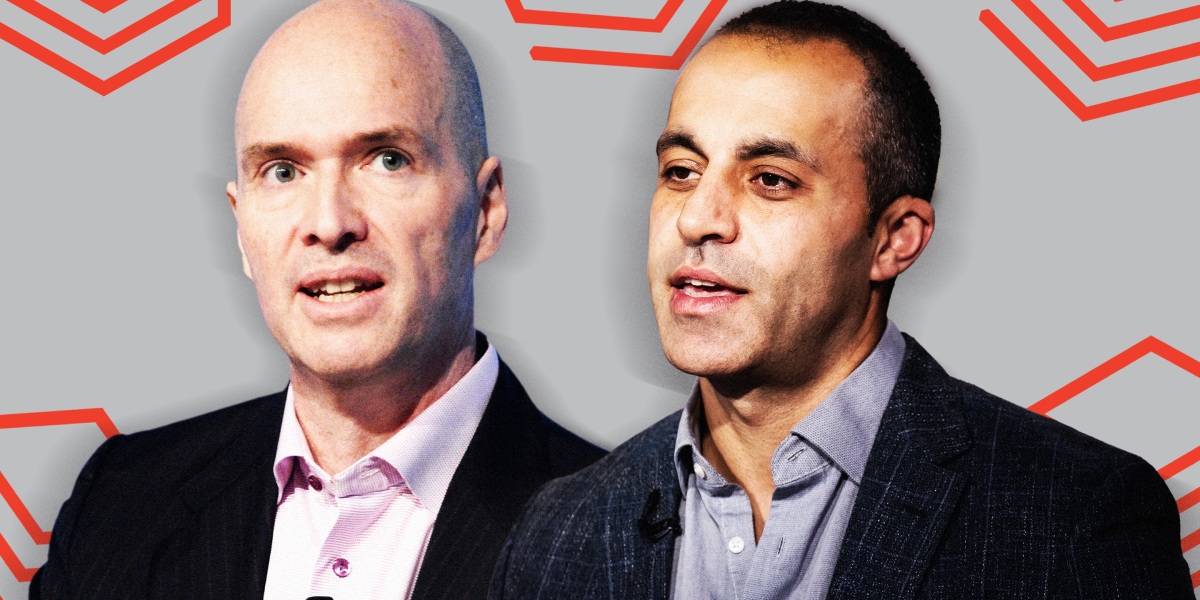Buy now, pay later giant Klarna has been one of several casualties as 2022 sent valuations plunging back to earth.
Klarna CEO and co-founder Sebastian Siemiatkowski called it a “shift in investor sentiment” in the company’s annual report it filed last week: Where once investors were laser-focused on growth—now they expect profitability.
As Klarna reported an operating loss of about $1 billion for the 2022 calendar year, the fintech finds itself worth about 85% less than it was in 2021. That’s despite 19% year-over-year revenue growth and 150 million users, stats that likely would have made venture capitalists proud a mere two years ago.
Several high-profile decacorns have been embattled in layoffs and valuation trims, though Klarna is the only one to have a formal liquidity event. Stripe, for example, is reportedly looking to raise new capital at a valuation of $55 billion to $60 billion, down from some $95 billion in 2021. Shein is reportedly in talks to raise new funding at $64 billion, a 36% trim from last April. And Instacart has cut its own valuation internally to about $10 billion, down from $39 billion in 2021.
So what is the data management software company Databricks worth these days?
I asked CEO Ali Ghodsi that question, for a recent feature story I wrote for Fortune. He says Databricks has lowered its internal 409A valuation by approximately 10% below its last formal fundraise in August 2021, when it was deemed to be worth $38 billion. It’s an adjustment, indeed, though quite the modest one relative to the share prices of some of its high-valued peers.
As I wrote in my recent story, it’s hard to say how that figure would stand up in today’s market, should Databricks need to go back and fundraise.
For one, Databricks has reported strong growth metrics as it rides the A.I. boom, with its data platform being used by companies from CVS to Microsoft to Shell to power the development of machine learning tools that can be used internally across the rest of those organizations. In 2021, Databricks reported revenue of $600 million. Last year, when Databricks had adjusted its financial models to report run rate, rather than ARR, it said in August that it had crossed the $1 billion annual run rate threshold, and the company says it surpassed a 70% annualized growth rate at that time.
But if Databricks is profitable, it isn’t saying so. And competitors like Snowflake or MongoDB, (both public data management and cloud storage companies that are running at net losses), are trading at more than 41% below what they were in August 2021, when Databricks was back in the market fundraising.
Asset managers like Fidelity, BlackRock, and T. Rowe Price, which hold both private and public equities in some of their mutual funds, have marked down the price of their Databricks shares to represent somewhere between a $24 billion to $31 billion valuation, with BNY Mellon pricing Databricks as low as $15 billion, according to Securities and Exchange Commission filings and data compiled by Caplight, a private market company data provider.
“Who knows what we would be worth if we were public,” Ghodsi says.
A16z’s Ben Horowitz, who led Databricks’ Series A, and has participated in every financing round since, says Databricks has been growing so quickly that it doesn’t really matter that valuations are coming down, and estimates that the valuation figure probably hasn’t changed by much. “It’s right in that neighborhood,” Horowitz says, referring to Databricks’ last formal fundraising round. “Until you do a round, you’re not so sure, but it’s right there, yeah.”
The data management company’s valuation may not matter too much—so long as the company has enough capital to outlast the need of another fundraise before the IPO market reopens. For its part, Databricks says it isn’t fundraising: It claims it is sitting on $2 billion on its balance sheet and that its growth strategy is fully funded.
Clearly, some companies have been able to maintain their strong valuations—and the last two weeks of Term Sheet newsletters are proof that companies are still fundraising hundreds of millions.
You can read all about Databricks’ growth explosion and why Ben Horowitz backed the company despite their terrible first pitch deck in my feature here.
See you tomorrow,
Jessica Mathews
Twitter: @jessicakmathews
Email: [email protected]
Submit a deal for the Term Sheet newsletter here.
Jackson Fordyce curated the deals section of today’s newsletter.
VENTURE DEALS
– Plus One Robotics, a San Antonio-based robotic parcel handling software and solutions provider, raised $50 million in Series C funding. Scale Venture Partners led the round and was joined by Top Tier Capital Partners, Tyche Partners, ROBO Global Ventures, Translink, McRock, and Pritzker Group Venture Capital.
– Assured Allies, a Boston-based aging insurtech platform, raised $42.5 million in Series B funding. FinTLV Ventures and Harel Insurance co-led the round and were joined by Lumir Ventures, Funds managed by Hamilton Lane, New Era Capital Partners, MS&AD Ventures, Core Innovation Capital, Poalim Equity, EquiTrust Life Insurance Company, Akilia Partners, and Samsung Next.
– Overhaul, an Austin-based software-based supply chain visibility, risk, compliance, and insurance solution, raised $38 million in funding. Edison Partners led the round and was joined by eGateway Capital, StepStone Group, and TRM Ventures.
– Banyan Infrastructure, a San Francisco-based financing software platform, raised $25 million in Series B funding. Energize led the round and was joined by SE Ventures, Ulu Ventures, VoLo Earth, Elemental Excelerator, and others.
– Cognosos, an Atlanta-based location systems platform for asset tracking, raised $25 million in funding from Riverwood Capital.
– Kresus, a San Francisco-based crypto wallet and Web3 discovery app, raised $25 million in Series A funding co-led by Liberty City Ventures, JetBlue Ventures, Franklin Templeton, Marc Benioff, Cameron and Tyler Winklevoss, Craft Ventures, and others.
– Paragonix Technologies, a Cambridge, Mass.-based, organ transplant company, raised $24 million in Series B funding led by Signet Healthcare Partners.
– Candidly, a New York-based student debt and savings platform, raised $20.5 million in Series B funding. Altos Ventures led the round and was joined by Cercano Management.
– RangeForce, a Norfolk, Va.-based cyber defense upskilling solutions provider, raised $20 million in Series B funding. Energy Impact Partners and Paladin Capital Group co-led the round and were joined by KPN Ventures, Lapa Capital Partners, Lanx Capital, and Cisco Investments.
– Geothermal Engineering Limited, a Cornwall, U.K.-based geothermal plants operator and developer, raised £15 million ($17.81 million) in funding from Kerogen Capital and Thrive Renewables.
– Roami, formerly Sextant Stays, a Miami-based hospitality company, raised $14 million in Series A funding led by Vigo Capital.
– Rebel Girls, a New York-based girl empowerment brand, raised $8 million in Series A funding. Penguin Random House led the round and was joined by Common Sense Growth and other angels.
– Unitary, a London-based contextual A.I. platform for content moderation automation, raised $8 million in funding from Plural and other angels.
– Barley, a Toronto-based compensation management platform, raised $4 million in seed funding. Golden Ventures led the round and was joined by Union Capital and other angels.
– Felix&Fido, an Issaquah, Wash.-based veterinary services company, raised $4 million in pre-seed funding co-led by Pioneer Square Labs and Rover.com.
– ViridiCO2, a Southampton, U.K.-based carbon dioxide solutions provider, raised £3 million ($3.79 million) in seed funding led by EQT Ventures.
– DexMat, a Houston-based climate tech startup, raised $2.7 million in seed funding. Shell Ventures led the round and was joined by Overture Ventures, Climate Avengers, and others.
– itselectric, a Brooklyn-based electric vehicle charging company, raised $2.2 million in pre-seed funding. Brooklyn Bridge Ventures led the round and was joined by The Helm, XFactor, Graham & Walker, Clean Energy Venture Group, Pericles, and others.
– MEplace, a London-based early years nursery group, raised £1.2 million ($1.42 million) in seed funding from Active Partners and other angels.
PRIVATE EQUITY
– Blue Sage Capital acquired a minority stake in Clearly Clean Products, an Orwigsburg, Pa.-based sustainable food packaging trays manufacturer. Together, Blue Sage and Insight Equity hold a majority stake. Financial terms were not disclosed.
– Kelso & Company acquired a minority stake in Pathstone, an Englewood, N.J.-based advisory firm. Financial terms were not disclosed.
– Luminate Capital Partners acquired a majority stake in Ease, a San Clemente, Calif.-based manufacturing plant floor audit software company. Financial terms were not disclosed.
EXITS
– EagleTree Capital acquired PRA, a Chicago-based business event management company, from CI Capital Partners. Financial terms were not disclosed.
IPOS
– ZKH Group, a Shanghai-based B2B procurement platform for industrial supplies in China, filed for an initial public offering in the U.S.
PEOPLE
– HarbourVest, a Boston-based asset management firm, promoted Emily Archer, Matthew Dowgert, Dominic Goh, Blake Holman, Joel Hwang, Ryan Jones, Warwick Mancini, David Morris, and David Rule to managing director. The firm also promoted 12 other employees to principal and senior associate.
– Lightspeed Venture Partners, a Menlo Park, Calif.-based venture capital firm, hired Sebastian Duesterhoeft as partner. Formerly, he was with Coatue.
– Unless, a Boulder, Colo.-based investment firm, hired Elisabeth Reynolds as partner. Formerly, she was special assistant to President Joe Biden for manufacturing and economic development.



